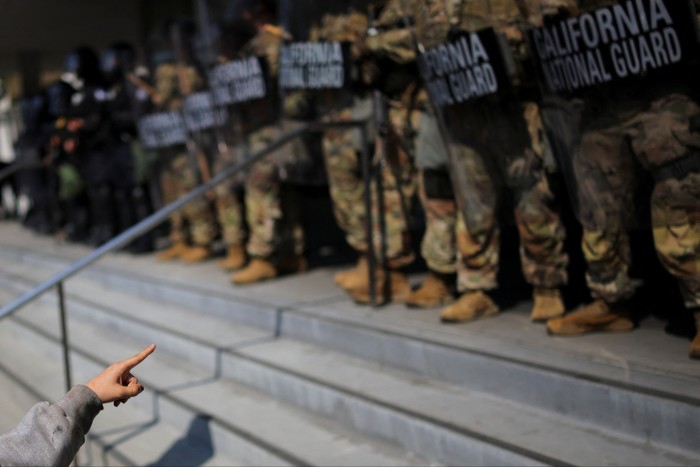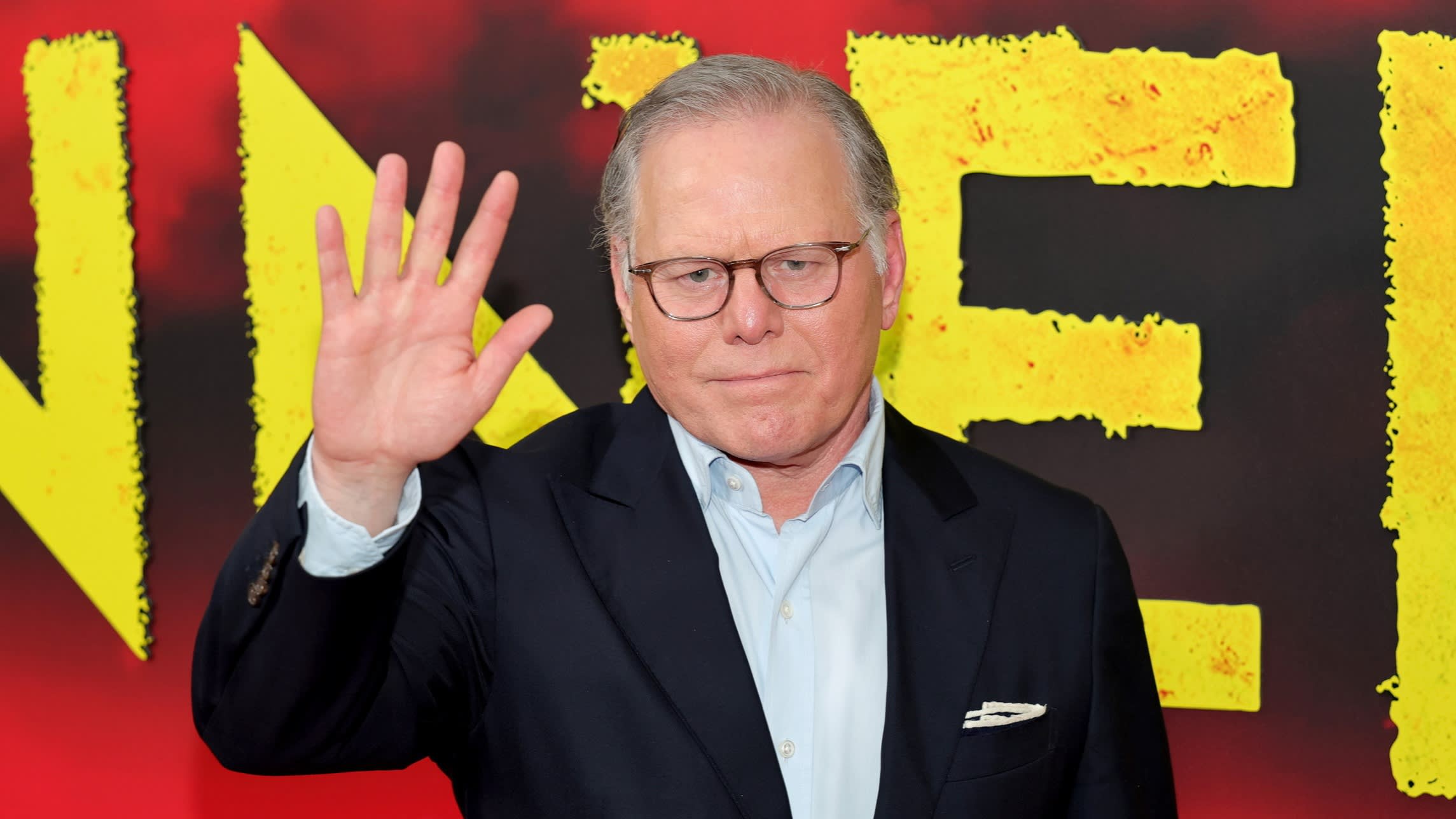Military veterans object to Donald Trump’s intervention in Los Angeles

Unlock the White House Watch newsletter for free
Your guide to what Trump’s second term means for Washington, business and the world
A growing number of military veterans and serving officers have spoken out against President Donald Trump’s decision to deploy Marines and National Guard troops to Los Angeles, calling it a misuse of executive power that puts soldiers’ lives at risk.
The move to send 700 Marines to protests as part of the Trump administration’s crackdown on undocumented migrants marked a “major shift in civilian-military norms and a dangerous precedent”, said Janessa Goldbeck, a Marine Corps veteran.
“When I joined the Marine Corps I took an oath to the constitution, not to a person, not to a party,” said Goldbeck. “I believe that the military exists to defend our republic and not to serve the political ambitions of one person.”
The US armed forces have been at the centre of an escalating political row since Saturday night when Trump ordered the Pentagon to send at least 2,000 National Guard troops to Los Angeles in response to demonstrations against raids on suspected illegal immigrants.
On Monday, California sued the president over the move, accusing him of “creating fear and terror”.
“This is a manufactured crisis to allow him to take over a state militia, damaging the very foundation of our republic,” Governor Gavin Newsom said.
Members of the National Guard have also expressed misgivings about the deployment. “Watching this unfold makes everyone very uncomfortable,” Dylan Blaha, who has served with the Illinois National Guard for nine years and is now seeking a seat in US Congress as a Democrat, told the Financial Times.
“Service members raise their right hands to uphold the constitution and protect the people of the United States,” he said. “And as an officer I was always taught that you do not obey an unlawful order.”
Retired Major General Paul Eaton, who led the operation to train Iraqi troops during the US invasion of Iraq, told the FT that Trump’s order was a “display of presidential hubris” and a “misuse of executive power”.
“The last thing the US military wants is the image of a young man or woman with a rifle imposing the will of executive power on the people of the United States,” said Eaton, who works alongside Goldbeck at Vet Voice Foundation, a non-profit that seeks to empower military veterans to become civil leaders.
One of the most controversial aspects of the deployment was that Trump “federalised” the California National Guard, transferring control of military troops from the state to the national level — over Newsom’s objections.
“The president’s federal deployment of the National Guard over the official wishes of a governor is bad for all Americans concerned about freedom of speech and states’ rights,” said retired Major General Randy Manner, a former acting vice-chief of the National Guard Bureau, said in a statement to Fox News on Sunday. “The governor has the authority and ability to respond to the civil disturbances with law enforcement capabilities within his state, augmented as necessary by requesting law enforcement assistance from other governors.”
The last time a president used federal troops without the permission of a state governor was during the 1960s civil rights movement.
Trump justified the deployment as a necessary response to the civil unrest in Los Angeles and labelled the protesters “insurrectionists”.
Over the weekend, defence secretary Pete Hegseth warned that if violence continued, active-duty Marines would be mobilised to support federal law enforcement efforts in the city. On Monday, the Pentagon confirmed that it had activated 700 marines to help protect “federal personnel and federal property in the Greater Los Angeles Area”.
Experts said the move was a violation of an 1878 law called the Posse Comitatus Act, which bars the use of federal troops on domestic soil for policing purposes.
Experts said it was unclear on what legal basis Trump and the defence department were sending the Marines to Los Angeles. The only way the federal government can deploy active-duty forces for domestic law enforcement is to invoke the 1807 Insurrection Act, which allows the use of military forces to suppress disorder, insurrection or rebellion that hinders the enforcement of federal law.
Lindsay Cohn, associate professor at the US Naval War College and an expert on the armed forces, said Trump’s move was problematic for the National Guard, which tends to prefer missions such as disaster response to policing civil unrest.
“The policing role puts them in this position where they have to determine whether people are legitimately exercising their constitutional rights or are criminals,” she said.
Their mission won’t be helped by the fact that “you have the governor of their state claiming that this was an illegal order”. Cohn stressed she was speaking in a personal capacity.
“This is not how the National Guard should be used — ever,” said Rachel Hicks, who served in the Tennessee and Nevada Guard for 11 years, most recently helping people to get vaccinated during the Covid-19 pandemic.
“None of these soldiers are trained for riots,” she said. “So you’re putting both parties in very unsafe and potentially fatal situations.”






